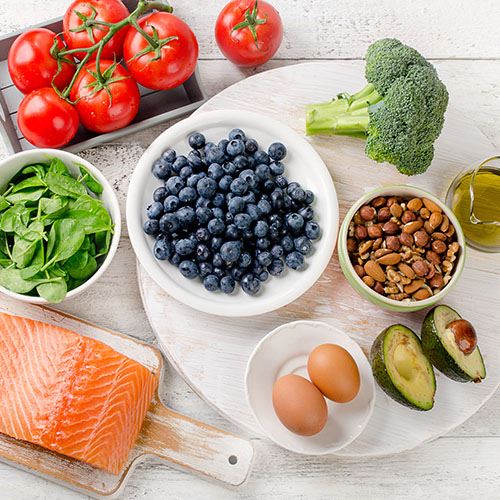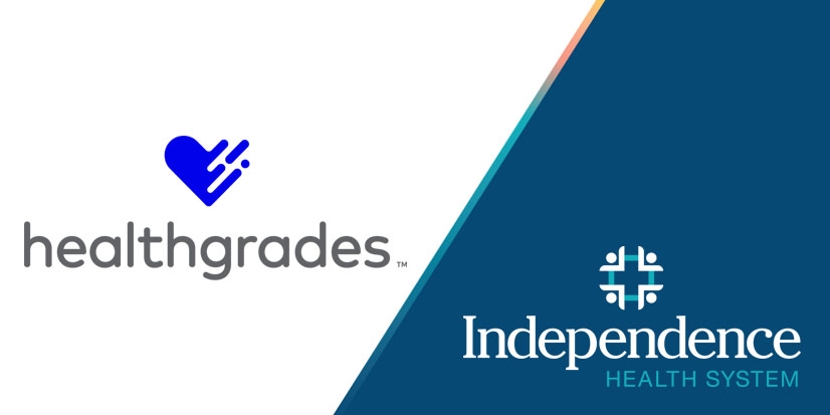10 Foods You Should Be Eating to Boost Brain Health
- Category: Blog, Health & Well-Being, Healthy Habits
- Posted On:

 There is solid scientific evidence to support that stress management, quality sleep, exercise, active brains, and eating a brain-healthy diet can slow down the rate of cognitive decline as we age. Certain nutrients – omega 3 fatty acids, vitamin E, B vitamins, flavonoids, lutein and beta carotene- have been shown to slow down aging of the brain, therefore fighting off cognitive decline and lowering your Alzheimer’s/dementia risk. The MIND diet, which stands for Mediterranean-DASH Intervention for Neurodegenerative Delay, takes these nutrients and translates them into recommended servings of brain healthy foods.
There is solid scientific evidence to support that stress management, quality sleep, exercise, active brains, and eating a brain-healthy diet can slow down the rate of cognitive decline as we age. Certain nutrients – omega 3 fatty acids, vitamin E, B vitamins, flavonoids, lutein and beta carotene- have been shown to slow down aging of the brain, therefore fighting off cognitive decline and lowering your Alzheimer’s/dementia risk. The MIND diet, which stands for Mediterranean-DASH Intervention for Neurodegenerative Delay, takes these nutrients and translates them into recommended servings of brain healthy foods.
So, what should we eat to keep our memories strong and our brains healthy?
Berries (Two or more half-cup servings/week)
A source of flavonoids- includes all purple/red/blue and black berries.
Leafy Green Vegetables (Six or more servings/week)
Rich in vitamin E, folate, lutein and beta carotene-includes arugula, spinach, kale, romaine lettuce, mustard greens, Swiss and rainbow chard, turnip and beet greens, Napa cabbage, watercress and spring mix.
Other Vegetables (0ne or more servings/day)
Antioxidant powerhouses include broccoli, bok choy, Brussels sprouts, cabbage, cauliflower, carrots, beets, eggplant, sweet peppers, and mushrooms.
Whole Grains (Three half-cup servings/day)
Rich in B vitamins and a moderate source of vitamin E- brown rice, whole-grain bread/pasta, barley, wheat berries, farro, bulgar, corn, oats, rye, quinoa, amaranth, millet, buckwheat and wild rice. Also included here are fiber rich starchy vegetables-potatoes, yams, corn, winter squash and peas.
Nuts and Seeds (more than five one-ounce servings/week)
High in brain healthy fats, vitamins E and B- almonds, cashews, macadamias, peanuts, walnuts, Brazil nuts, pecans, pistachios and sunflower/pumpkin/sesame seeds.
Fish and Seafood (at least one serving/week)
An omega 3 fatty acids source- salmon. Herring, mackerel, tuna, sardines, rainbow trout, oysters, mussels, clams, crab, lobster, squid, scallops, shrimp, Alaskan pollock, rockfish, snapper, grouper, flounder, sole, halibut, ocean perch, cod, haddock, tilapia, catfish, mahi mahi, orange roughy and imitation crab.
Poultry (up to four serving/week)
A great source of B vitamins, chicken and turkey are the most popular. Remember to remove the skin and avoid frying.
Beans and Legumes (more than three half-cup servings/week)
The most nutrient dense are black beans, chickpeas, white beans, edamame, lentils and lima beans.
Red Wine (one five ounce serving/day)
Before you get too excited, keep in mind that the portion size here is small and this recommendation comes from the fact that red wine is an important part of the Mediterranean diet. It is, however, most likely going to be replaced soon in the MIND diet with another food pending study results.
Extra Virgin Olive Oil (use as your primary cooking oil)
An excellent source of vitamin E, antioxidants and mono-unsaturated fats.

Dawn Davoli, Registered Dietitian

